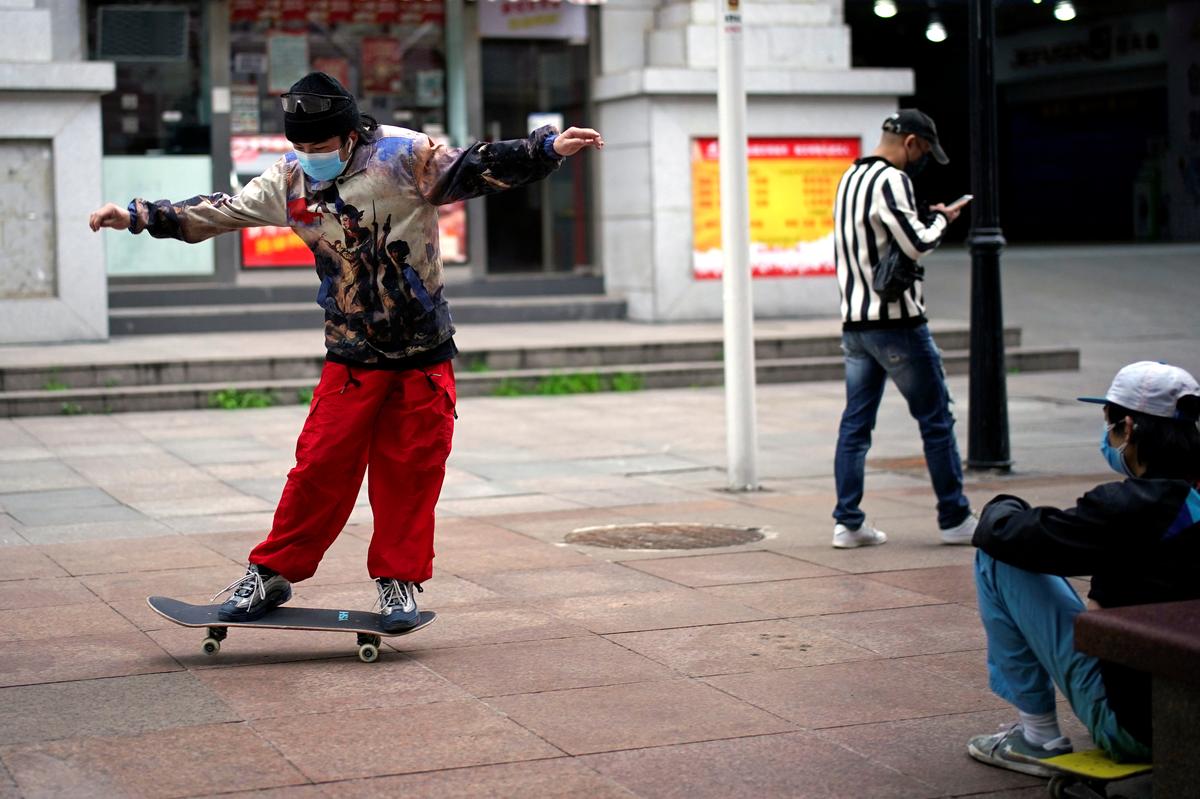WUHAN, China (Reuters) – A growing number of imported coronavirus cases in China risked fanning a second wave of infections when domestic transmissions had “basically been stopped”, a senior health official said on Sunday, while eased travel curbs may also add to domestic risks.
A man wearing a face mask skateboards on a street in Wuhan, Hubei province, the epicenter of China’s coronavirus disease (COVID-19) outbreak, March 28, 2020. REUTERS/Aly Song
China, where the disease first emerged in the central city of Wuhan, had an accumulated total of 693 cases entering from overseas, which meant “the possibility of a new round of infections remains relatively big”, Mi Feng, spokesman for the National Health Commission (NHC), said.
Nearly a quarter of those came from arrivals in Beijing.
“Beijing, the capital, still bears the brunt of the risks,” said Xu Hejian, spokesman for the Beijing government, told reporters.
“There’s no reason to lay back and relax yet. It’s not a time when we can say everything is going well.”
Most of those imported cases have involved Chinese returning home from abroad.
A total of 3,300 people have now died in mainland China, with a reported 81,439 infections.
China was widely accused of a delayed response when suspected cases first emerged in December, with a young doctor reprimanded for “spreading rumors” when he trie

